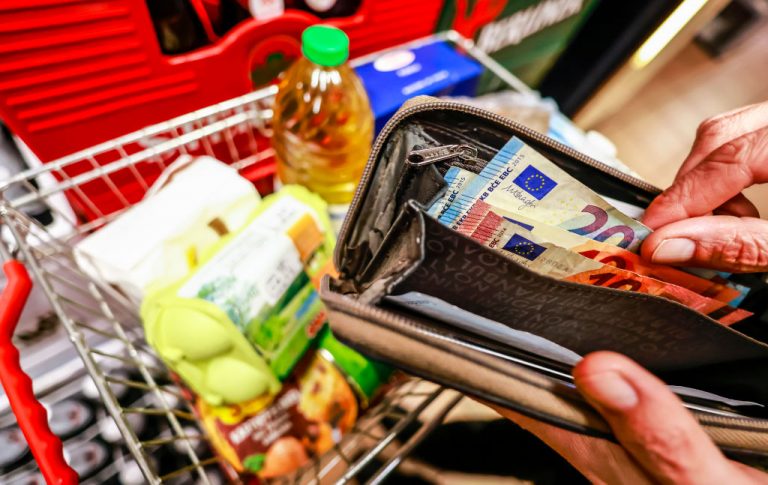Mere days after Germany reported the highest inflation in generations — 7.6 percent in March — the German Retail Federation (HDE) told consumers to prepare for another wave of massive price hikes for everyday goods and groceries.
On Friday, HDE President Josef Sanktjohanser told the Neue Osnabrücker Zeitung that even before the war in Ukraine broke out, prices in the country had already increased by about 5 percent as a result of soaring energy prices.
Now another round of price hikes are unfolding. “The second wave of price increases is coming, and it will certainly be in the double figures,” Sanktjohanser said, adding that, “We will soon be able to see the impact of the war reflected in price labels across all the supermarkets.”
Popular retail giants Aldi, Edeka and Globus all announced that they will be forced to raise their prices.
“Since the start of the Ukraine war, there have been jumps in purchase prices that we have not experienced before,” a spokesperson for Aldi said on Friday.
Success
You are now signed up for our newsletter
Success
Check your email to complete sign up
Aldi also announced that meat and butter will be “significantly more expensive” beginning Monday while blaming suppliers and surging energy prices, in addition to the war in Ukraine, for the price hikes.
Roughly two weeks ago, Aldi raised prices on 160 items, and a week later raised the prices on an additional 20 other items, prompting other supermarkets to quickly follow suit.
Despite the increased cost, the supply of food is expected to meet demand. Joachim Rukwied, president of the German farming association, said that the food supply in Germany is assured for at least another year, however admits that after this the forecasts are less certain.
Despite this, supermarkets are complaining about panic-buying at a level not seen since the beginning of the pandemic. The behavior has prompted some supermarkets to begin limiting the purchase of cooking oils and flour to ensure supplies are available for all shoppers.
READ MORE:
Inflation in Germany surges beyond 7%
After recording an inflation rate of 5.1 percent in February, Germany again recorded internal inflation at 7.3 percent for March as companies and service providers passed on increased energy costs to consumers.
Analysts, polled by Reuters, had expected the consumer price index (CPI) rate in the country to be around 6.3 percent.
Jens-Oliver Niklasch at Landesbank Baden-Wuerttemberg said, “Welcome back to the 1970s! At least as far as food, goods and energy prices are concerned.”
Late last month, the German government announced a stimulus package for its citizens worth approximately 17 billion euros (US$18.69 billion). The package aims to cut fuel prices, provide one-off payments to households and subsidise public transit.
Germany also plans to amend its tax code to account for wage increases designed to compensate for the historic inflation.
Finance Minister Christian Lindner told the Bild am Sonntag newspaper, “We will adapt the tax system. Rising wages must not be taxed away from people even though they’re losing purchasing power because of the current inflation.”
Linder also expressed that he opposed a German ban on oil and gas from Russia saying that it would incur “dramatic” economic consequences for Germany.
According to Bloomberg, Linder said that the German government should discuss “all options” to reduce the country’s reliance on Russian fossil fuels, including relying on nuclear power for the foreseeable future and exploiting oil and gas deposits in the North Sea.

















